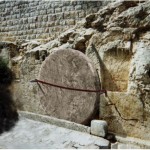 Some of the saddest words in the English language begin with the letter ‘D’. For example: disappointment, doubt, disillusionment, defeat, discouragement, despondency, depression, dejection, despair and death. Woody Allen once said:
Some of the saddest words in the English language begin with the letter ‘D’. For example: disappointment, doubt, disillusionment, defeat, discouragement, despondency, depression, dejection, despair and death. Woody Allen once said:
‘Our civilization stands at the crossroads. Down one road is despondency and despair. Down the other road is total annihilation. I hope we’ll take the right road.’
While the statement was intended to be humorous, it does reflect the presence of despair and pessimism in our world today.
FOR YOU TO DO 1 – Scavenger Hunt
Using the news website links below or brainstorming, make a list of events in the world that could reflect the negative view of the world as outlined by Woody Allen above, things that make the class disillusioned.
CNN Student News
CNN has a site devoted to kids news. You can even watch today’s edition of Student News online if you miss it on TV. Each story is presented with clear information and also includes discussion topics for classrooms.
New York Times Learning Connections
The site features current news summaries, daily news quizzes, ‘word of the day’ and test prep sections, and a science Q&A section. Student connections is updated Monday through Friday throughout the year.
On this site from the BBC, you can read the news and even hear some of the stories. The entire site is devoted to young people and even includes a section on what to do if the news is upsetting. It includes sections on the UK, world, sprots, music, TV/Film, Animals, Sci/Tech, Weather, Pictures and a fun find out section where you can learn more about subjects in the news.
Newsmap is an application that visually reflects the constantly changing landscape of the Google News news aggregator. Newsmap also allows to compare the news landscape among several countries, making it possible to differentiate which countries give more coverage to, for example, more national news than international or sports rather than business.
 Disappointment, doubt, disillusionment, defeat, discouragement, dejection, despair and death – all these words sum up how Cleopas and his companion were feeling as they trudged along towards Emmaus, a town located seven miles northwest of Jerusalem.
Disappointment, doubt, disillusionment, defeat, discouragement, dejection, despair and death – all these words sum up how Cleopas and his companion were feeling as they trudged along towards Emmaus, a town located seven miles northwest of Jerusalem.
They had made a choice, at some stage in the past three years, to follow Jesus of Nazareth and only a week before, their hopes that this man might be the promised Messiah, had reached fever pitch when the excited crowds had welcomed their Master to Jerusalem by waving palm branches and shouting ‘Hosanna’.
Now they are sad and disillusioned. Jesus lies dead in a sealed tomb. Disbelief has overpowered them. They are leaving Jerusalem because for them, Jesus’ death was a disaster, an unmitigated tragedy. The dream is over, their hopes are dashed.
FOR YOU TO DO 2
Revisit the list of events drawn up in Exercise 1. In any of these events has anything good / positive been done to bring HOPE into that situation?
DISILLUSIONMENT ¦ HOPE
As the two men walked along, a stranger joined them. We know that the stranger was Jesus – they didn’t. As the three men walk together, Cleopas and his friend tell the stranger of their hopes and their disappointments. The stranger provides a listening, sympathetic ear.
It’s a wonderful image – Jesus walking along the road with his sad and confused disciples sharing their troubles. This story from 2000 years ago is still relevant for followers of Jesus today. When our lives are affected by either disappointment, doubt, disillusionment, defeat, discouragement, despondency, depression, dejection, despair or death, Jesus is the unseen ‘stranger’ walking alongside us, listening to our troubles and if we are open to his voice, we come to understand where and when the Lord is present and this can give us hope.
FOR YOU TO DO 3
Read the reflection below and write about a challenging time in your life when you felt God helped you keep going…
Footprints
One night a man had a dream. He dreamed he was walking along the beach with the Lord. Across the sky flashed scenes from his life. For each scene he noticed two sets of footprints in the sand. One belonging to him and the other to the Lord.
When the last scene of his life flashed before him, he looked back at the footprints in the sand. He noticed that many times along the path of his life there was only one set of footprints. He also noticed that it happened at the very lowest and saddest times of his life.
This really bothered him and he questioned the Lord about it. ‘Lord, you said that once I decided to follow you, you’d walk with me all the way. But I have noticed that during the most difficult times in my life there is only one set of footprints. I don’t understand why when I needed you most you would leave me.’
The Lord replied, ‘My precious, precious child, I love you and I would never leave you. During your times of trial and suffering when you see only one set of footprints, it was then that I carried you.’
In the Emmaus story, we see that we do not walk the journey of life alone. Jesus is with us at all times and in all situations. However, the Road to Emmaus story highlights two ways in particular that Jesus is with us…
1. The Word of God
Through his word Jesus helps us keep on the right path. On the Road to Emmaus he explains the full meaning of the Scriptures for the disciples’ lives and we will look at how Jesus speaks to us in our lives and is truly present in the Scriptures in our journey of life.
2. Eucharist
It was in the Breaking of the Bread that the disciples truly recognised the risen Jesus. Today Jesus is especially present to us in the Eucharist, where he shares himself with us and becomes our food and drink to sustain us on the journey of life. In lesson 4 we will look at how celebrating the Eucharist, particularly on Sunday, helps continue the work and mission of Jesus in the world today.
Conclusion
The road to Emmaus is a symbol of the Christian life. This story is about ordinary despair and disillusionment. It is a story about meeting a stranger, hearing his words of comfort, sitting down at a table and sharing a meal. For Christians, this is a story about HOPE. It enables us to see that the risen Lord brings support when we feel discouraged, joy when we feel disappointment and hope when we feel disillusioned.
FOR YOU TO DO 4
Research positive words that are the opposite to the following negatives…
______ is the opposite of Disappointment.
______ is the opposite of Doubt.
______ is the opposite of Disillusionment.
______ is the opposite of Defeat.
______ is the opposite of Discouragement.
______ is the opposite of Despondency.
______ is the opposite of Depression.
______ is the opposite of Dejection.
______ is the opposite of Despair.
______ is the opposite of Death.
Reflection on theme of ‘Hope and Disillusionment’
 We cannot merely pray to You, O God, to end war,
We cannot merely pray to You, O God, to end war,
For we know that You have made the world in a way
That man must find his own path to peace,
Within himself and with his neighbour.
We cannot merely pray to You, O God, to end starvation,
For You have already given us the resources
With which to feed the entire world,
If we would only use them wisely.
We cannot merely pray to You, O God, to root out prejudice,
For You have already given us eyes
With which to see the good in all people
If we would only use them rightly.
We cannot merely pray to You, O God, to end despair,
For You have already given us the power
To clear away slums and to give us hope
If we would only use our power justly.
We cannot merely pray to You, O God, to end disease,
For You have already given us great minds
With which to search out cures and healing,
If we would only use them constructively.
Therefore we pray to You instead, O God,
For strength, determination and willpower,
To do instead of just pray,
To become instead of merely to wish.
Click here for Lesson 3: The Word of God





